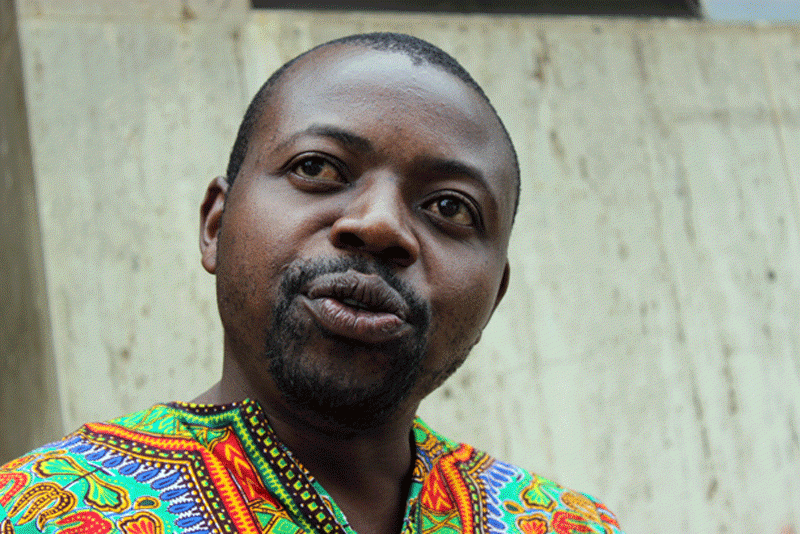
TEACHERS say they will embark on a go-slow when schools open today as opposed to a full-blown strike, citing victimisation by State security agents.
Schools open today for the final term of the year, and Amalgamated Rural Teachers Union of Zimbabwe president Obert Masaraure said they had received calls from across the country where teachers are claiming that they are receiving threats from suspected State agents, warning them against going on a strike.
“We are not going on strike because we have received reports of intimidation by some teachers. They will just go to school, but they will be on a go-slow,” Masaraure said.
“It is sad that we received a report on Friday where a teacher in Harare said he was approached by unknown people threatening him of unspecified consequences in the event that he goes on strike.”
Zimbabwe Rural Teachers Union president Martin Chaburumunda said it would be difficult for rural teachers to travel to their stations because of incapacitation.
“It is unfortunate that some of our members are being victimised and the truth is that most of the teachers don’t have money to travel to their respective stations because of incapacitation,” Chaburumunda said.
“We have also received allegations of victimisation on teachers who might want to lead a strike. Rural teachers are the most affected civil servants since some of them travel long distances to fetch water and other amenities.”
Progressive Teachers Union of Zimbabwe president Takavafira Zhou said there were mixed feelings among teachers ahead of the schools reopening.
- Schools closure fuel drug abuse
- Riding roughshod on restive workers will backfire Mr President
- Schools closure fuel drug abuse
- Riding roughshod on restive workers will backfire Mr President
Keep Reading
“There are mixed feelings among teachers with some preferring incapacitation from the opening day. But others prefer incapacitation from September payday and use that payday for mobilisation purposes in light of the futile two-day action towards end of second term,” he said.
“Whatever the case there is no doubt that there will be an impasse in the education sector soon and the government is to blame squarely as it has failed to engage teachers in order to resolve the burning issue of salaries and pathetic conditions of service.”
Educators Union of Zimbabwe secretary-general Tapedza Zhou said the Public Service Commission (PSC) was aware of the incapacitation and pleaded with the government not to be tough on those who might fail to report for duty.
“We demand that while schools are opened by the few that are sacrificing their resources, the PSC should not descend on those failing to report for duty on the first days. Teachers’ paltry August salaries are long exhausted to cover transport costs, food, accommodation bills, school fees and many other pressing issues,” Zhou said.
Zimbabwe Union of School Heads secretary-general Munyaradzi Majoni told NewsDay that despite lack of declaration of a full-blown strike, it was not certain the reopening was going to be smooth.
“We cannot be certain about the smooth opening of schools because teachers’ morale is at an all-time low. Not only are teachers grumbling about a low salary which has turned out to be synonymous with civil service work, but also a salary which is a fraction of what other civil servants are getting,” he said.
“Teachers are getting as little as 20% of what those in the health sector are getting, for example. Clearly that is demotivating and fertile ground for unwanted outcomes in schools. We have made no declarations yet and their working conditions are currently the worst.”
Zimbabwe Teachers Association secretary-general Goodwill Taderera said the association anticipated that the teachers would report for duty.
“We are anticipating that our teachers will report for duty as we wait for promises by the government to improve our salaries and we also anticipate that the US dollar salary and the local currency salary will be significantly improved.
“It is never our intention to cause trouble. We want to serve the government and it is prudent that the employer notes that teachers value dialectical materialism,” Taderera said.
Education ministry spokesperson Taungana Ndoro said the educators were raring to start the new school term.
“We know most of our teachers are ready to go. Some of them are actually competing with each other to beat the previous pass rate so they will be teaching and learning will be receptive,” he said.
“Don’t listen to the few that are saying they will go slow. Our teachers are noble as they will be competing against each other in terms of quality education. The remuneration aspect is on point and the ministry of public service will say something. It also has to do with education but we know that as the ministry we provide quality education.”
Meanwhile, schools in Manicaland province that are demanding levies and tuition fees in foreign currency have defended their stance citing the runaway inflation.
A school head who commented on condition of anonymity said they were finding the going tough when running boarding schools.
“We want to avoid the burden of calling for top-ups and also the risk of not meeting planned targets, hence the foreign currency is the way to go. After all, we are operating in a multi-currency system.
“Boarding schools can only thrive if funds to run them are available. Let us not forget salaries of ancillary staff are pegged in US dollars,” the headmaster said.
Efforts to get a comment from Public Service minister Paul Mavima were fruitless as his phone was unreachable.










